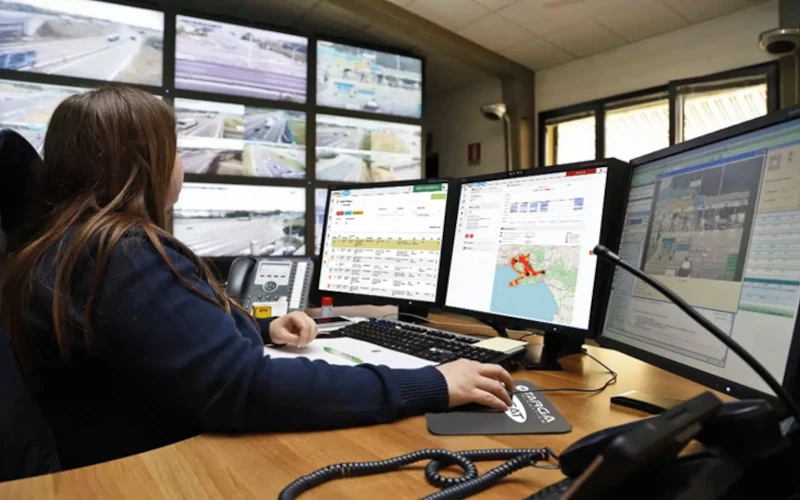By Mugundhan Deenadayalan, Industry Principal – Mobility
Protecting vehicles from theft is vital as they constitute a critical asset for all fleets, regardless of size and application. Vehicle theft persists as a widespread problem across Europe, underscored by compelling statistics. According to Eurostat’s latest report, over 600,000 passenger vehicles were reported stolen within the European Union in 2022 alone. This imposes a tremendous financial burden, with estimations indicating that European citizens suffer billions of euros in annual losses due to stolen assets and insurance claims.
Exploiting technological vulnerabilities, organized crime facilitates the theft and cross-border trafficking of vehicles for resale or disassembly. Certain nations shoulder a disproportionate share of this burden, as do certain areas like urban settings where population density and vehicle concentrations elevate theft rates. Despite concerted efforts to address the issue through bolstered security measures and international cooperation, the persistently low recovery rate of stolen vehicles presents ongoing challenges for law enforcement and policymakers across Europe.
Deploying AI & ML in assessing vehicle theft risk models
Fleet managers are always on the lookout for effective strategies that minimize the impact of vehicle theft by enhancing the rate at which stolen vehicles are recovered. Today, advanced technological solutions incorporating Artificial Intelligence (AI) and Machine Learning (ML) algorithms offer a promising avenue to prevent vehicle theft. By analyzing patterns and anomalies, these systems can identify potential theft risks in real-time, enabling proactive measures to prevent incidents before they occur, thereby ensuring the security of valuable fleet assets.

Targa Telematics Dashboard. Source: Targa Telematics
Through advanced data analytics, AI algorithms analyze patterns and trends associated with theft incidents, enabling the identification of high-risk incidents and deployment of targeted preventive measures like emergency notifications. ML algorithms can also continuously learn from new data to improve predictive models, enhancing their ability to anticipate and prevent future thefts. Additionally, AI-enabled video safety systems can monitor and analyze real-time footage from dashcams, allowing for rapid detection of suspicious activities and prompting intervention from fleet managers. Furthermore, AI-driven vehicle tracking systems provide real-time location updates, facilitating swift recovery of stolen vehicles.
Reinforcing ROI value of Targa’s ‘Smart Vehicle Protector’

Control room at Targa Telematics and Viasat. Source: TargaTelematics
In line with this, Targa Telematics asserts that last year, its ‘Smart Vehicle Protector’ supported an over 30% reduction in vehicle theft in fleets with over 1 million vehicles under five years old. This significant achievement in the battle against vehicle theft was realized through predictive capabilities enabled by advanced technologies like AI and ML algorithms. Deploying ML models and AI to diligently learn from and react to risk models has allowed for the early identification and proactive neutralization of theft risk before it even happens. Such rapid and focused intervention is based on multiple factors, including data insights related to behavioral patterns and dynamic risk models. Frost & Sullivan finds that Targa is committed to ongoing investments in new technologies and in the analysis of theft models. This includes regular updates to operating procedures and algorithms through the AI module of Targa Telematics’ open mobility platform.
Targa Telematics claims that the Smart Vehicle Protector yields a host of financial benefits to fleets. For instance, it posits costs savings of about €7 million for fleets with a 100,000 vehicle size, linked to the fact that fleets need to buy new vehicles to replace stolen ones. Furthermore, it highlights the substantial cost savings accrued as a result of speedy vehicle recovery, as timely vehicle recovery can translate into considerable savings in terms of restoration costs, potentially totaling up to close to €475,000. Beyond anti-theft, the solution also assists with fraud detection, fostering a sense of trust among customers and car rental companies.
The other unique aspect of the Smart Vehicle Protector is its customization and multifunctionality features enabled by hardware components embedded within the Smart Vehicle Protector. It is capable of seamlessly blending theft prevention with fleet management solutions facilitating business optimization for fleets.
Our Perspective
The Smart Vehicle Protector’s holistic strategy is geared towards minimizing theft and tampering risks, thereby protecting the value of fleet vehicles and enhancing fleet management for increased profits from vehicle assets. Prioritizing driver safety, Targa provides 24/7 support along with customizable solutions for leasing and rental companies. The seamless integration of Targa and Viasat’s technologies with current systems ensures operational smoothness, while its telematics-equipped vehicles yield rapid returns on investment and substantial reductions in insurance expenses.
Targa Telematics and Viasat’s Smart Vehicle Protector solution holds immense potential in mitigating the prevalence of vehicle thefts across Europe. Targa Telematics’ recent acquisition of Viasat Group amplifies its technological prowess through synergistic integration. Following the recent launch of a new suite of fleet management solutions, the company is already reaping tangible benefits from its Smart Vehicle Protector solution. Frost & Sullivan predicts that Targa will solidify its position as a trusted partner not only to numerous vehicle leasing and rental fleets but also across all passenger and light commercial vehicle fleets in Europe. By harnessing the capabilities of AI and ML, Targa Telematics significantly enhances its efforts in reducing vehicle thefts and safeguarding fleets and insurers.



